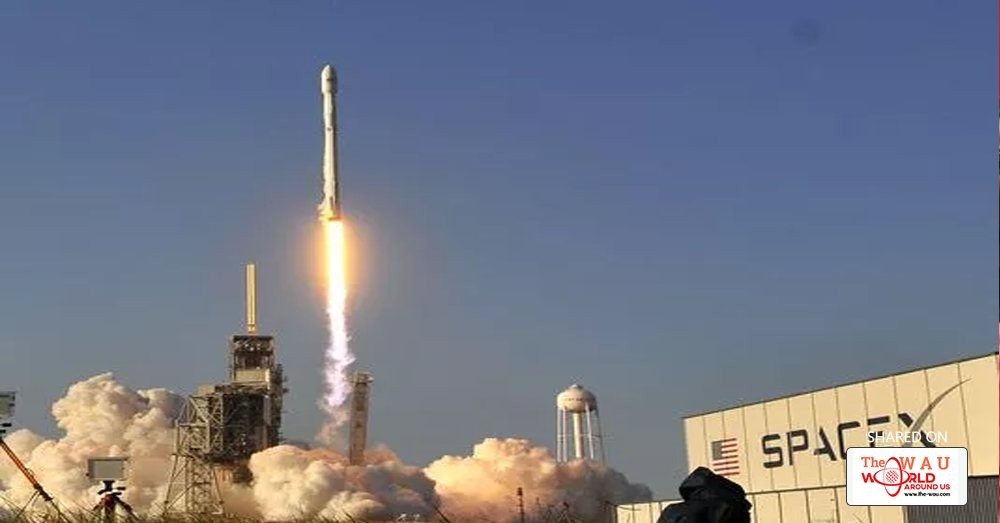SpaceX, the upstart California company that brought the world reusable rockets and dramatically lower launch costs, now has plans to beam broadband internet from space to consumers around the world.
Why would a rocket manufacturer want to get into the broadband internet business? The hope is to create a cash cow that would enable its founder, industrial superstar Elon Musk, to compete with his arch rival, fellow billionaire and space entrepreneur Jeff Bezos, in the race to make humanity a "multi-planetary species."
But the risk, some industry analysts say, is huge and Musk may be betting his company's future on the effort.
Last month, SpaceX's vice president of satellite government affairs, Patricia Cooper, told the Senate Committee on Commerce, Science and Transportation that the company is aiming to launch 4,425 small satellites on Falcon 9 rockets to fully deploy a constellation to low Earth orbit by 2024. The proposal also included an additional 7,518 satellites in orbital planes even closer to the ground.
The aim is to transmit global internet connectivity to billions of users on the ground through a network of small, smart satellites without digging trenches, laying cables or dealing with property rights. With several companies aiming to launch similar satellite constellations, SpaceX could take a slice of the market. The company already operates a satellite development office near Seattle to make the dream a reality.
Musk's launch services company operates in an industry with ever-present risks and high costs. Successes with his Falcon 9 rocket's reusability have provided some financial improvements, experts say, but the launch industry isn't known as a money-maker. At least not enough of one to fulfill Musk's dream of establishing a self-sustaining civilization on Mars, which will cost billions.
If interplanetary ambitions are to become reality, SpaceX will likely need a major source of income, something Amazon.com founder Jeff Bezos and his launch company, Blue Origin, already have. Bezos boasted at a space convention earlier this year that his business model involves little more than him selling a billion dollars a year of his Amazon stock, which topped $1,000 a share this week.
Some experts see the challenges facing SpaceX – federal regulations, costs and competitors, to name a few – as surmountable, but the massive barrier of entry to the satellite broadband market could mean slimmer profits than expected. Musk may also be late to the game as several companies, most notably OneWeb, which has a Florida manufacturing plant under construction and plans to launch its first satellites in May 2018, have made clear their satellite broadband intentions.
Others agree that the gambit is a risk with potentially massive rewards that could propel Musk's company to the lucrative field of satellite operations and, ultimately, the red planet itself.
Could Musk, who has already disrupted the automobile and space industry, pull this off?
"They're betting the house on this," said Richard Rocket, CEO and co-founder of NewSpace Global, an information service provider that tracks the space industry.
SpaceX declined to comment for this story.
Since its founding in 2002, SpaceX's long-term mission has been to make humanity a "multi-planetary species." For Musk, that means the establishment of a self-sustaining civilization on Mars.
Chris Quilty, president of Quilty Analytics, a St. Petersburg-based research and consulting firm that focuses on the satellite and space industry, believes satellite communications could provide a financial vehicle for Musk to start funding the trip.
"If you're in the space business and you're saying, 'Where's the revenue?' it's in satellite communications," he said. "So that's naturally the part of the industry where he's decided to create a business model."
The Satellite Industry Association's latest report agrees: Global revenues were up by 3 percent from 2014 to 2015, bringing the total value of the industry to $208 billion. Launch services, also calculated in the SIA report, is a sliver of that total at $5.4 billion.
Share This Post















